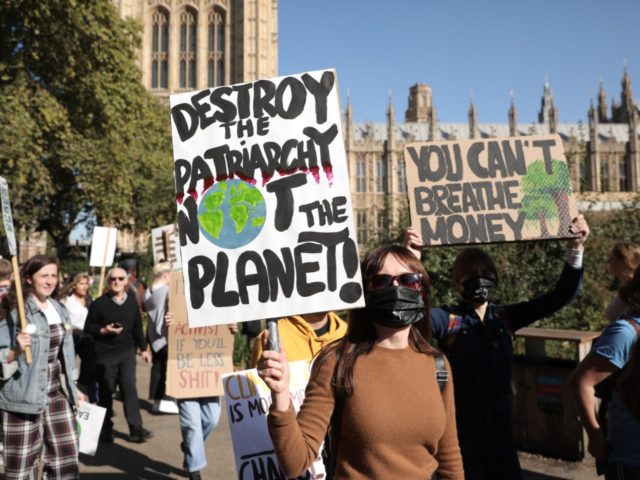The Lancet medical journal announced Friday the development of a Planetary Health Watch (PHW) system to monitor levels of climate change and other “planetary boundaries.”
In their article titled “Monitoring environmental change and human health: Planetary Health Watch,” a team of four researchers refers to nine planetary boundaries “that if transgressed could lead to non-linear, abrupt environmental change.”
“These boundaries indicate critical risks arising from climate change, ocean acidification, depletion of stratospheric ozone, biogeochemical flows, atmospheric aerosol loading, land-system changes, global use of freshwater, biosphere integrity, and novel entities,” the authors note.
“Breaching these boundaries has the potential for major, but imperfectly understood, risks to human health and wellbeing,” which signals a need for greater monitoring, the writers propose. “Most of these risks are not clearly recognised or monitored, and are invisible to the policy, economic, and social systems that can help mitigate them.”
Funded by grants from the Wellcome Trust and the National Geographic Society, the team proposes an “action-oriented policy, industry, and public engagement programme” since the purpose of the PHW is to drive public policy decisions toward a low-carbon future.
The development of a Planetary Health Watch system aims to integrate monitoring capabilities, which are “crucial to improve the understanding of the risks and guide responses,” the authors contend.
“Planetary challenges require developing capacity for systemic responses across multiple levels and sectors, including policy making, financial investments, community action, and public awareness,” they add.
“Therefore, PHW should be tailored for research, surveillance, and decision-making purposes across sectors by engaging target users in its co-design, co-development, and co-roll-out,” they state, always with a practical aim of driving public policy and funding.
The researchers state that they are looking for “the best strategies for providing data to drive those actions that can leverage big course corrections in the way our society operates, triggering and sustaining transition to a low carbon, low environmental footprint economy within a safe operating space for humanity.”
In other words, the team wishes to generate climate change propaganda that will convince decision-makers to alter the course of nations based on fears of climate disaster should certain “boundaries” be exceeded.
“An effective PHW is vital to galvanise much needed action to address the growing threats to planetary health including urgent actions to address the climate crisis,” the authors conclude.
Meanwhile, a recent article in Forbes magazine reported that publishing papers on climate change in academic literature based on flawed methods is a formula that has been “repeated time and time again.”
“Like the introduction of a virus, the misleading reinterpretation of climate scenarios has subsequently expanded throughout the climate science literature and into leading assessments,” it states.
“We have a well-funded effort to fundamentally change how climate science is characterized in the academic literature,” states author Roger Pielke, “how that science is reported in the media, and ultimately how political discussions and policy options are shaped.”
Climate change activists are so anxious to get their point across that they are willing to cut academic corners, fudge data, and misuse models to create scenarios that respond to their needs, even if not to the truth.
“The corruption of climate science has occurred because some of our most important institutions have let us down,” Pielke writes. “The scientific peer review process has failed to catch obvious methodological errors in research papers. Leading scientific assessments have ignored conflicts of interest and adopted flawed methods. The media has been selectively incurious as to the impact of big money on climate advocacy.”
“This is a story of how wealth and power have corrupted science in pursuit of political goals,” Pielke concludes. “Climate change is important, there is no doubt. But the importance of climate change does not mean that we should abandon high standards of scientific integrity.”
Follow @tdwilliamsrome

COMMENTS
Please let us know if you're having issues with commenting.